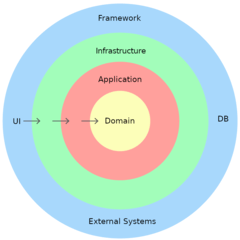Understanding the role of an Engineering Manager
Becoming an engineering manager is not just about climbing the ladder. It is a complete shift in responsibility. You are no longer measured by the code you write or the tasks you complete. Now you are accountable for how the entire team performs. You can delegate work, but you are still responsible for results. If no one owns a problem, you do. That is not an extra detail, that is the job.
This shift means learning to focus less on your individual contributions and more on enabling others to succeed. It requires staying aware of project status, team dynamics, and the challenges each person faces. Your role is to clear the way, provide support, and make sure work moves forward smoothly.
Stay close to the team without micromanaging
As a manager, you need to know where every project stands and understand the reasons behind important decisions. That helps you spot risks early and offer support where it counts. But this does not mean tracking every small task or getting involved in every detail.
At the same time, you must watch for signs of stress or frustration. People don't always speak up when they're struggling or burned out. Paying attention to changes in attitude or communication helps you catch problems early and step in before they grow.
If a problem doesn't have an owner, it falls on you. Being a manager means making sure every important issue gets handled, even if it's not assigned to someone yet. Taking responsibility for what's missing is part of the job.
The importance of anticipating problems
Good managers don’t just wait for problems to happen and then fix them. Waiting to address problems until they appear puts unnecessary pressure on the whole team. It forces everyone to scramble to fix urgent issues instead of focusing on steady progress. By anticipating challenges early, the team can work more calmly and stay on track toward their goals.
Look for patterns in problems. If the same issue keeps coming up, solve it at its root instead of applying quick fixes. This helps the team run more smoothly with less fire-fighting and frustration. Developing the habit of planning ahead takes effort, but it makes work less chaotic and improves results over time.
Help people grow by challenging them
Growth happens when people take on challenges they are ready for, not when they are thrown into chaos. The role of a manager is to find the right balance between pushing and supporting. Presenting these challenges with confidence helps build motivation. Instead of saying it might be too hard, try saying, "I believe this can be handled. Would you like to give it a try?". This encourages a positive mindset and willingness to take on new responsibilities.
When someone succeeds, the difficulty can be increased gradually. If things don’t go as planned, work together to adjust and find a better approach. Growth requires patience and consistent effort.
Change doesn't come from forcing or ordering people around. Effective managers influence change by clearly explaining reasons and convincing through well-grounded arguments. While authority may be needed at times, real progress happens when people understand the purpose and choose to support it.
Different ways to help people learn
People learn in different ways, and a good manager knows how to adjust their approach. Sometimes it's best to explain how to do something directly. Other times, sharing personal experience or advice helps. And often, asking questions that guide someone to find their own answers is the most effective way to teach.
If asking questions doesn't lead to progress, switching to a more hands-on style can help. Using guiding questions that gently steer the thinking process is a good way to support learning without taking control completely.
Adapting how knowledge is shared keeps learning fresh and helps each person grow in the way that works best for them.
Support growth with the right timing
Moving too fast can turn a strong performer into someone lost and frustrated. You go from feeling confident to feeling overwhelmed and behind. That's the risk of rushing promotions or responsibilities. It's better to grow steadily and be truly ready than to push someone too soon and have them struggle. Readiness means handling current work well and showing signs of managing the next level, including communication and ownership.
Don't promote just to motivate. Motivate with clear goals, real feedback, and transparency about what growth looks like. That builds lasting success.
Give clear feedback that helps
Feedback is essential. But general comments like Good job or Needs work don't help anyone improve. Make feedback specific and tied to real situations using the SBI method:
Situation: describe when and where something happened
Behavior: describe what the person did
Impact: explain the result or effect
This structure keeps feedback clear and focused on facts, not feelings. It works well for both praise and constructive criticism.
Avoid making quick assumptions about someone's behavior. Instead, ask questions to understand their perspective. This approach builds trust and prevents misunderstandings. At the same time, it is important to be mindful of one's own state before making important decisions or giving feedback. Clear thinking leads to better choices and stronger support for the team.
Make 1:1 meetings truly valuable
One-on-one meetings are more than just updates or check-ins. They are an opportunity to build trust, understand concerns, and support growth. For these meetings to work well, both people need to actively participate and bring topics to the table. When only one side leads the conversation, the chance to connect and solve problems is lost.
Encouraging open dialogue means inviting honest feedback and questions. Use simple questions like:
Are you happy with your role?
What do you like most and least about the team?
What parts of your work do you enjoy?
What skills would you like to improve?
How would you rate the project and our teamwork right now?
Make it clear that these meetings are not the only place to raise issues. If something comes up between sessions, it's important to speak up and find time to talk sooner. Regular, two-way communication helps create a stronger, more supportive working relationship.
Conclusion
Engineering management is a major shift from coding to leading. It means owning results, supporting people thoughtfully, and planning ahead to keep things moving. It is not easy, but the reward is building a team that works well and grows. Being mindful, keeping communication open, and guiding growth with care creates a workplace where everyone can perform at their best. This is the core of effective management.




0 Comments